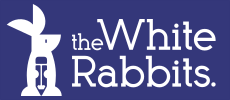The significance of echo chambers coincides with the rise of the internet. Social media and forums allow people to create community online. But, these communities can be a jumping-off point towards extremism. Echo chambers are an online space that offers little variety in social or political ideas. Someone is in an echo chamber when their social media feed is made entirely of opinions similar to their own. This isolates people from opposing ideas and can have dangerous consequences.
Social media’s role
It’s easier now more than ever to create an echo chamber. Social media algorithms are designed to keep your attention, so they show you content they know you like and filter out the rest. It’s human nature to not want to engage with ideas you disagree with and unlike real life conversations, social media doesn’t force you. This doesn’t just apply to political issues either. Science, health, media, religion and more can be the subject of an echo chamber.
Say you’re a little skeptical of vaccines. You might like a couple of posts from content creators that share that same belief. The algorithm notices that kind of content gets you to engage on their platform, so they show you some more anti-vax content. It knows that holistic medicine tends to be popular among people that watch anti-vax videos so it shows you that, too. After it confirms you like these videos, it might show you more extreme posts within that genre. Instead of teas to help with allergies, it becomes cayenne pepper is more effective than Tylenol, and later, drinking raw milk and sunning your rear end cures cancer. Obviously, this is an extreme example, but echo chambers can make it easy for anyone to fall into this type of thinking.
Social media algorithms know that people seek out information that aligns with their world view. They also know that novelty and extremism capture our attention and keep us on their app for longer. It doesn’t matter if there is any truth to the information being pushed, as long as it’s entertaining their viewers. We have plenty of real life examples of how dangerous this can be.
Encouraging political extremism
On January 6th of 2021, violent group of far right extremists attacked the US Capitol building. The insurrectionists largely congregated on social media in echo chambers of their own. The discussion of shared political beliefs forged an online community where fringe ideas were normalized and misinformation made its rounds. Extremist thinking eventually turned into real life violent acts.
There are many theories as to how these online environments develop and lead to devastating real world consequences. One of the dominant theories being what was described earlier. A form of self-radicalization in which people are seemingly at the mercy of their social media algorithm. But, after examining these extremist echo chambers, it’s likely that the process is more social.
These echo chambers are founded on shared belief systems that are already deeply meaningful to an individual. A shared culture develops among members of online communities and this causes political ideals to become more intensely intertwined with personal identity. Because out-groups are not present, there are no other perspectives to explore. The community can only spiral down a path of their own ideas and assumptions. Echo chambers exaggerate the negative qualities they believe the opposition has and lumps thousands or even millions of people into a single image. When a community portrays out-groups so negatively, it only serves to strengthen their own ties to each other and political identity. They don’t want to be one of those blue-haired liberal baristas, so they make their political conservatism the core of their sense of self.
Misinformation makes echo chambers even more dangerous. Without anyone willing to challenge questionable information, it tends to go by unchecked. Despite using examples from the far right, it’s important to know that anyone call fall for an echo chamber or misinformation. People on both the right or left of the political spectrum may fall for false information or conspiracy theories that align with their worldview. This also applies to other topics outside of political affiliation. This is why we are seeing the rise of anti-science or anti-modern medicine beliefs.
Echo chambers and the crunchy epidemic
Echo chambers are very prominent in health and wellness communities as well. So-called crunchy influencers are spreading anti-science ideologies that put themselves and their viewers at risk. Holistic medicine isn’t inherently bad, but spreading false information in regards to people’s health is. Many people join online communities like this because they are concerned or desperate for information that can help them heal. Instead they are met with claims that medical intervention is bad and the chemicals in their medicines are killing them. People who are sick fall victim to these ideologies and forgo treatment believing whatever supplement going viral that week will cure them.
It’s one thing to refuse yourself treatment, and another to stand in the way of other’s. People that fall victims to these echo chambers often medically neglect their children. Concern over harmful chemicals in medicine or food can lead people to resort to dangerous products. Colloidal silver or raw milk are among the most common of these items that can make people very sick. The popularity of raw milk in particular is on the rise despite how dangerous it is. At a time when diseases like the avian flu are running rampant, the promotion of snake oils is especially sinister.
Avoiding echo chambers
Avoiding echo chambers is easy when you know how they work. You can start by following multiple news sources that are influenced by a range of political leanings. It’s also recommended to avoid news stories or content that is obviously sensationalized. When something is created to drum up controversy, it’s not unlikely that misinformation may be at play.
The most effective way to avoid an echo chamber is to just fact check information. If you want to learn more about a topic, look into more than one source. Making sure your sources are credible makes it much easier to find factual information. A quick search is all that’s needed to not only brush up on current events, but also avoid dangerous information as a whole.
Check out:
Luigi Mangione and the American Health Insurance Industry
Uncertain Futures: The LGBTQIA+ Community’s Continuous Battle for Equal Rights










Be First to Comment